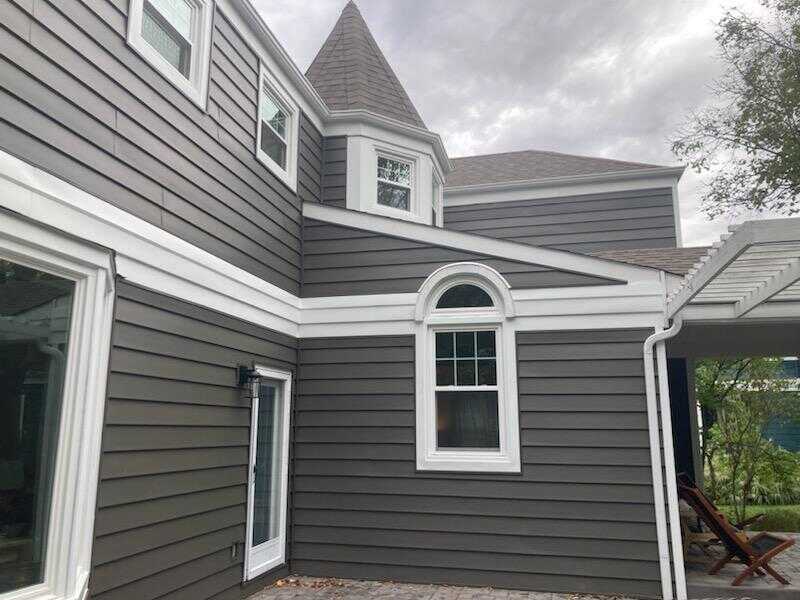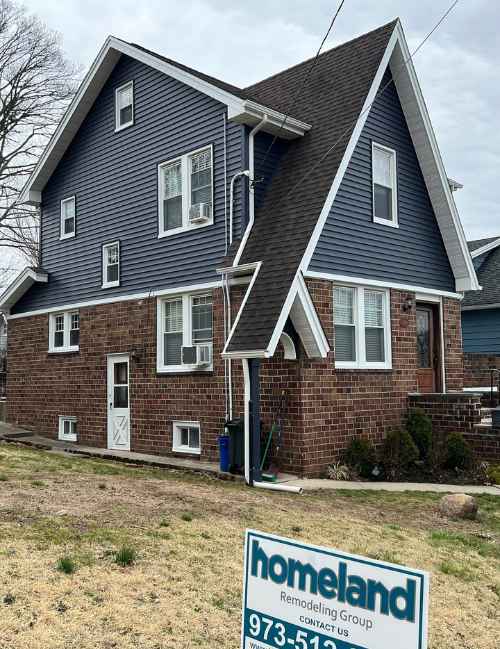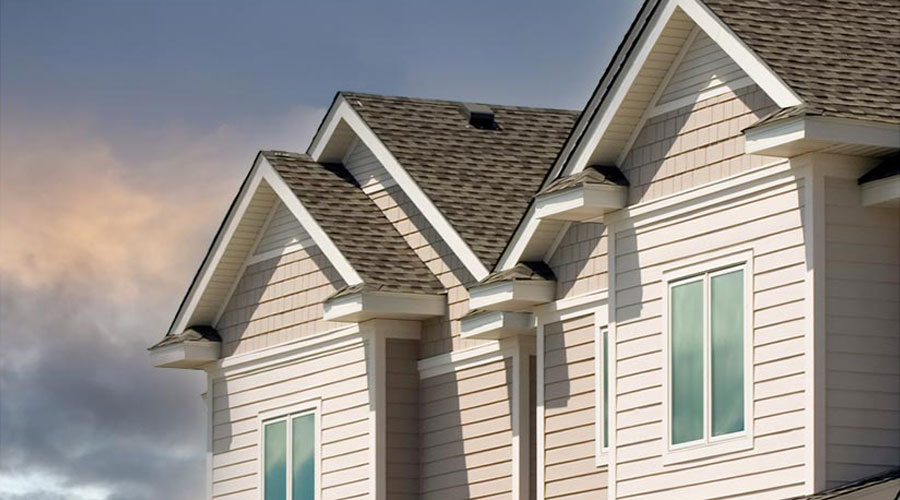Morris Siding Contractor Providing Energy-Efficient Home Exterior Installations
Morris Siding Contractor Providing Energy-Efficient Home Exterior Installations
Blog Article
The Crucial Guide to the Numerous Kinds Of Home Siding and Their Unique Advantages
In the world of home renovation, selecting the appropriate home siding is a vital decision that impacts both visual allure and useful performance. The variety of materials readily available, such as timber, plastic, fiber cement, steel, and block, each offer one-of-a-kind advantages that deal with various requirements and preferences. Comprehending these differences can dramatically improve the longevity and value of a home - morris siding contractor. However, with many choices to consider, which siding material truly sticks out for your particular project? Discovering these options can result in educated decisions that align with both design and usefulness.
Wood Home Siding
Wood home siding, a prominent choice for residential outsides, supplies a classic aesthetic that integrates natural elegance with architectural integrity. This exterior siding material is offered in numerous designs, consisting of clapboard, tiles, and board-and-batten, allowing property owners to personalize their appearance to match their layout preferences. Timber house siding is normally crafted from durable varieties such as cedar, redwood, or yearn, which are known for their durability and capability to withstand environmental stress factors.
Among the primary benefits of timber exterior siding is its superb insulation buildings, which can contribute to energy performance and lower home heating costs. Additionally, wood home siding is naturally degradable, making it an ecologically pleasant alternative when sourced sustainably. Regular upkeep, including paint or staining, can extend its life expectancy and improve its appearance, permitting property owners to protect the natural appeal of the wood.
Nonetheless, possible downsides consist of susceptibility to pests, rot, and weather damage, necessitating sufficient therapy and upkeep - morris siding contractor. Regardless of these problems, when correctly looked after, wood siding can give a sturdy and attractive service that improves the character of a home while supplying a cozy, welcoming ambience

Vinyl House Siding
Vinyl exterior siding has emerged as a leading choice for property owners seeking a low-maintenance outside choice that integrates resilience and affordability. This functional product is crafted from polyvinyl chloride (PVC), making it resistant to different weather, including moisture and UV rays. As an outcome, vinyl siding does not warp, rot, or fade, guaranteeing lasting visual allure.
One of the primary benefits of vinyl home siding is its considerable series of colors and styles, permitting homeowners to achieve the desired try to find their property without the demand for constant repainting. Furthermore, vinyl home siding is simple to set up, which can substantially lower labor costs during building or improvement tasks.
Vinyl exterior siding additionally contributes to power efficiency. Many options function insulation backing, which boosts thermal performance, assisting to maintain comfortable interior temperature levels and possibly decreasing power expenses. Additionally, its smooth surface area helps with simple cleansing, needing just periodic cleaning with a garden hose to get rid of dirt and debris.
Fiber Cement House Siding
Fiber concrete home siding has gotten grip among home owners and contractors alike as a result of its exceptional combination of toughness and aesthetic adaptability. Composed of a combination of cement, sand, and cellulose fibers, this siding alternative is engineered to endure extreme weather, consisting of high winds, heavy rainfall, and temperature changes, making it a long-lasting choice for household exteriors.

Among the key advantages of fiber cement home siding is its resistance to parasites, such as termites, and its non-combustible nature, offering boosted fire safety and security. morris siding contractor. Furthermore, it is available in a broad range of styles, appearances, and shades, allowing home owners to achieve their desired visual without giving up efficiency
Another benefit is its low maintenance demands; fiber cement house siding normally needs painting or discoloration every 5-10 years, which is much less frequent than various other products. Its longevity contributes to a reduced general expense of possession, as it reduces the requirement for regular repairs or substitutes.
Eventually, fiber cement home siding stands for an outstanding investment for go to these guys those looking for a resilient, attractive, and flexible outside choice, incorporating both form and feature to improve the home's visual appeal.
Metal Home Siding
The allure of metal siding depends on its robust resilience and modern visual appeal, making it a favored option for contemporary style. Readily available in materials such as aluminum and steel, steel exterior siding supplies a series of coatings and shades, allowing home owners to accomplish a personalized look that matches their design vision.

Power performance is one more significant benefit, as several steel house siding products are made with insulation alternatives that assist control official site interior temperatures. This can lead to reduced power costs gradually. Furthermore, metal house siding is typically recyclable, making it an ecologically pleasant choice for sustainability-minded homeowners.
The installment procedure for metal exterior siding can be relatively uncomplicated, resulting in a quicker turn-around time for construction tasks. On the whole, steel exterior siding combines performance and style, making it a useful alternative for those looking for a enduring and aesthetically appealing exterior coating.
Brick and Stone Exterior Siding
Brick and stone siding attracts attention as a timeless choice that improves the aesthetic charm of any home. Recognized for their longevity and reduced upkeep, these products supply a phenomenal return on investment while raising the residential or commercial property's visual appeal. Offered in various colors, textures, and patterns, brick and stone can be tailored to match diverse building styles, from conventional to modern.
Among the main benefits of block and stone exterior siding is their power performance. Both materials have all-natural insulating residential or commercial properties that help regulate indoor temperature levels, possibly lowering cooling and heating prices. In addition, they supply premium fire resistance contrasted to other home siding choices, adding to enhanced security.
An additional advantage is their durability. Block and rock can last for decades, usually needing very little upkeep past periodic cleaning. Unlike timber siding, they are impervious to parasites and rot, Recommended Site making certain a durable exterior that withstands the components.
Final Thought
In recap, the selection of siding considerably affects a home's aesthetic charm, energy performance, and maintenance needs. Each type of siding-- whether timber, vinyl, fiber brick, metal, or cement and rock-- offers one-of-a-kind benefits tailored to various home owner choices and environmental problems.
One of the primary advantages of wood home siding is its exceptional insulation residential properties, which can add to energy performance and reduced heating expenses. Additionally, wood house siding is biodegradable, making it an ecologically pleasant option when sourced sustainably.One of the primary advantages of metal exterior siding is its resistance to numerous environmental factors.Power efficiency is another considerable advantage, as several steel exterior siding products are made with insulation alternatives that assist control indoor temperatures. Each type of house siding-- whether timber, vinyl, fiber concrete, brick, or steel and rock-- offers unique advantages customized to various homeowner preferences and ecological conditions.
Report this page